- europages
- >
- COMPANIES - SUPPLIERS - SERVICE PROVIDERS
- >
- hydraulic fluids
Results for
Hydraulic fluids - Import export
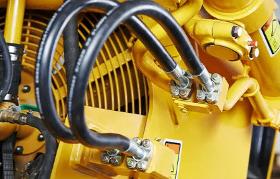
DIERMEIER ENERGIE GMBH
Germany
Our selected product portfolio of high-performance hydraulic fluids from Aral and Castrol for commercial and construction machinery offers you excellent lubrication and cooling performance to optimize the efficiency and longevity of your hydraulic systems. Our range includes hydraulic fluids that meet and exceed the manufacturer specifications of e.g. Caterpillar, Cummins, Mack and Volvo. We will advise you personally on the ideal choice for your needs.
Request for a quote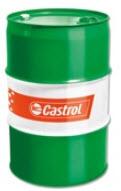
DIERMEIER ENERGIE GMBH
Germany
Castrol Anvol PE 46 B (07.09.2020) Flame-retardant hydraulic fluid Description The flame-retardant hydraulic fluid Castrol Anvol PE 46 B is based on defined, hydrolytically stable phosphoric acid esters. Castrol Anvol PE 46 B is a hydraulic fluid to be labeled as HFD 46 in accordance with DIN 51 502 or as HFDR 46 in accordance with ISO 6743-4 . Castrol Anvol PE 46 B complies with VDMA standard sheet 24 317 "Guidelines for flame-retardant hydraulic fluids" (type HFDR). The liquid is PCB-free. Application Castrol Anvol PE 46 B is preferably used as a hydraulic fluid in electro-hydraulic control systems of steam turbines. It was developed specifically for this purpose. Used as a circulation lubricant, Castrol Anvol PE 46 B is suitable for bearing lubrication of steam and gas turbines, provided they are designed for this group of materials, and it is used as a hydraulic fluid in industrial hydraulics that work in fire-hazardous environments.
Request for a quote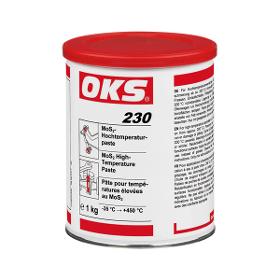
OKS SPEZIALSCHMIERSTOFFE GMBH
Germany
Lubrication of temperature-stressed machine parts, e.g. rolling bearings, friction bearings, slideways, chains, rollers or moving parts in hot forming, heat treatment or drying Dry lubrication, e.g. of kiln and rack-truck bearings, bearings of pouring ladles, converters or hot-air blowers at temperatures over 250°C Lubrication of plastic and rubber at normal temperature when the materials concerned are not resistant to mineral oil Advantages and benefits Highly effective due to the strong affinity of the MoS₂ for metals Extremely low friction at highest loading capability Broad range of applications at temperatures up to 200°C as paste, over 200°C to 450°C as dry lubricant Resistant to water, fuels and lubricants, chemicals and hydraulic fluids For best adhesion, clean the threads and sliding surfaces from dirt and other lubricants. Best way is to clean mechanically first and then with OKS 2610 or OKS 2611 universal cleaner.
Request for a quote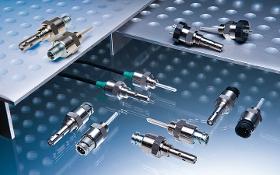
BEDIA MOTORENTECHNIK GMBH & CO. KG
Germany
BEDIA level monitoring sensors are used to monitor the filling levels of liquids. The sensors detect when a filling level is exceeded or falls below a limit. Water-based liquids like coolants, AdBlue®, fresh water, waste water, bilge water and oil-based liquids like motor oils, hydraulic oils, fuels and brake fluids can be monitored. Since they contain no mechanical moving parts, their function will not be influenced by dirt particles or other influences. No electrical current is sent through the medium via an electrode with BEDIA sensors, an electrolysis of the medium is not possible. Operating Principle The function of the sensor is based on the capacitive principle. It detects the change in capacitance that occurs when an electrode surrounded by air is immersed into a liquid medium. This change in capacitance at the electrode of the sensor excites an oscillator. This signal is processed by a microcontroller-based evaluation circuit which activates or deactivates an output stage.
Request for a quote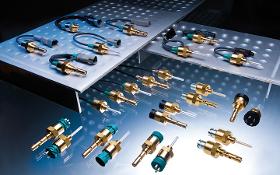
BEDIA MOTORENTECHNIK GMBH & CO. KG
Germany
BEDIA level monitoring sensors are used to monitor the filling levels of liquids. The sensors react when a filling level is exceeded or falls below a limit. Aqueous mediums like coolants, AdBlue®, fresh water, waste water, bilge water and oil-based liquids like motor oils, hydraulic oils, fuels and brake fluids can be monitored. Since they contain no mechanical moving parts, their function will not be influenced by dirt particles or other influences. No electrical current is sent through the medium via an electrode with BEDIA sensors, an electrolysis of the medium is not possible. Operating Principle The function of the sensor is based on the capacitive principle. It detects the change in capacitance that arises when an electrode surrounded by air is immersed into a liquid medium. This change in capacitance at the electrode of the sensor excites an oscillator, causing it to oscillate. Then this signal is processed by a microprocessor-based evaluation circuit.
Request for a quoteDo you sell or make similar products?
Sign up to europages and have your products listed

JAKOB ANTRIEBSTECHNIK GMBH
Germany
Hydraulic load cells of the HMD series are robust measuring instruments that gauge axial compressive forces with median accuracy. The force is transferred by pressure pistons analogously and via the hydraulic fluid to a manometer with a kN-indicator scale. The measuring system is autarkic so there is no need for external or supplemental power. Therefore, static and dynamic forces can be detected in numerous applications of the entire spectrum of mechanical engineering in an easy and economical way. Construction features: • autarkic system - no external power • heat treated steel - corrosion resistant • multi piston system - compensation of erroneous angle
Request for a quoteResults for
Hydraulic fluids - Import exportNumber of results
7 ProductsCountries
Company type